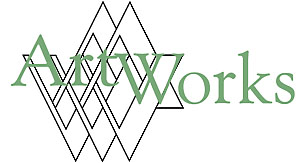
 |
Winter 2002-03 |
|
Mullens mural painter Accessible recreation guide Following the dream Disabilities guidance Cultural Facilities grant awards |
West Virginia to develop accessible recreation guideBy Regina A. Mayolo If you are an older adult with arthritic knees or an individual with disabilities using a wheelchair for mobility, where do you look to find information on accessible recreation sites in West Virginia? Over the past few years, guides to accessible recreation have been developed for cities, states, parks, museums and other tourism sites across the county. A quick surf of the Internet will uncover information from Maryland, Alaska, Washington, California, Arkansas, Maine and Minnesota. Dig a little deeper and you can even find guides for Disneyland and New York City’s theaters. But information on accessible recreation in West Virginia has been fragmented or available only by word-of-mouth. Agencies like the West Virginia Department of Natural Resources have done a great job in developing and promoting accessible outdoor recreation in the state. By visiting their website at www.wvparks.com/facilities/disabled.htm, you will find information on accessible fishing piers, swimming areas, campsites, trails and whitewater rafting. And organizations like Challenged Athletes of West Virginia and Wheelin’ Sportsmen, as well as events like the Wheelchair Shooting Championship, have brought the issue of recreation for individuals with disabilities to the forefront of many agency discussions. But where do you look to find information on accessibility at West Virginia’s museums, art centers, historical homes, theaters, stadiums, private recreation locations and other tourist destination sites? An effort is currently underway to develop a comprehensive guide to accessible recreation in West Virginia. It is being led by the West Virginia Assistive Technology System (WVATS) at the Center for Excellence in Disabilities, Robert C. Byrd Health Sciences Center at West Virginia University. WVATS has pulled together the collective resources of the WV Division of Tourism, WV Department of Arts, Culture and History, WV/DNR Parks & Recreation, WV State Trails Coalition, Monongahela National Forest, RetireWV and Challenged Athletes of West Virginia to develop a recreation guide to help visitors and residents enjoy what West Virginia has to offer individuals with special needs and diverse recreational interests. Partner agencies have developed a survey that will help find accessible state locations and the level of accessibility they provide. The survey, which is being distributed to sites and agencies, covers accessible entrances and parking, access to goods and services, access to rest rooms, provision of auxiliary communication aids and other special accommodations for special needs. Once the surveys are returned and analyzed, the information will be organized, merged with existing information and published in an easy-to-use guide for residents and visitors. The guide will also be available electronically on an accessible website that will provide links to accessible recreation areas across the state so tourists can customize their activities to meet their individual needs and interests. WVATS will also provide technical assistance to sites that want to improve their accessibility. Only sites that complete the survey will be included in the guide. Tourism is a growing industry for West Virginia, and has grown here at a significantly faster pace than the national average. West Virginia is host to more than 200 fairs and festivals; 1,000 miles of tourist trails; and 1 million acres of recreation land — much of which is accessible to individuals with disabilities including older adults. The goals for West Virginia’s accessible recreation guide are similar to the basic goals for Title III of the Americans with Disabilities Act regarding public accommodations: • to provide goods and services to people with
disabilities on an equal basis with the rest of the general
public; For more information on how to include your facility in the accessible recreation guide or to obtain a copy of the published guide, contact Regina A. Mayolo, project director, at 1-800-841-8436 or at [email protected]. |